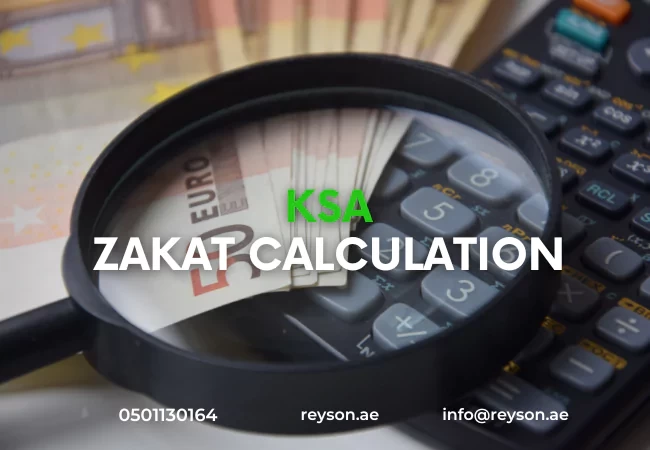

In Saudi Arabia, the concept of Zakat extends beyond individual commitment to encompass businesses as well. Zakat, deeply rooted in Islamic principles, serves as both a religious duty and a means of economic empowerment. For businesses operating in the Kingdom, understanding the complexities of Zakat tax is essential. This blog aims to shed light on the Zakat tax in Saudi Arabia specifically concerning businesses. From its fundamental principles to its practical implications, we'll explore how ZAKAT calculation in KSA impacts businesses and their contributions to societal welfare. Whether you're a small startup or a large corporation, navigating Zakat obligations is crucial for ensuring compliance with Sharia Law and fostering economic growth in the Kingdom. Join us as we delve into the realm of Zakat tax and its significance for businesses in Saudi Arabia.
Zakat, a religious obligation in Islam, is imposed at a rate of 2.5% on a company's Zakat basis, which is determined based on the entity's net worth. This wealth tax extends to investors and citizens of the GCC regions, calculated as 2.5% of their net worth, excluding income.
However, income tax in Saudi Arabia varies, with certain activities being subject to different rates. For instance, oil and hydrocarbon production face rates ranging from 50% to 85%. Notably, individuals working in natural gas companies have a distinct tax base independent of other activities.
It's essential to note that apart from regular income tax and Zakat, there are no additional local, state, or municipal government taxes on income in Saudi Arabia.
Yes, Zakat is mandatory for businesses in Saudi Arabia. As per Islamic law and regulations set by the Saudi government, Zakat must be paid by every Muslim-owned business that meets certain financial thresholds. This mandatory charity donation is calculated at a rate of 2.5 percent of the assets' net value of the company.. Zakat is imposed on all Saudi and GCC-owned establishments that fulfill the Kingdom's residency and other specified requirements. Failure to comply with Zakat obligations can result in legal penalties.
In Saudi Arabia, Zakat is calculated based on a business entity's net worth, known as the "Zakat base." The Zakat base includes cash, receivables, inventory, and other liquid assets, but excludes long-term assets like property and equipment. Here are the steps involved in calculating Zakat:
The general formula for calculating the Zakat base is:
Zakat Base = Sources of Funds × (Zakatable Assets /Total Assets)
An example calculation:
It is important to note that the Zakat year is based on the Hijri calendar, which may affect the number of days used in the calculation. For example, a leap year with 366 days would slightly alter the calculation.
In Saudi Arabia, paying Zakat tax is a straightforward process managed by the Zakat, Tax, and Customs Authority (ZATCA). Here are the steps to pay Zakat:
1. Complete Your Zakat Declaration:
Submit your Zakat declaration through the official ZATCA website or their designated online platform.
2. Receive SADAD Invoice:
After submitting the declaration, you will receive a SADAD invoice number. This invoice details the amount of Zakat due.
3. Make the Payment:
These methods ensure that the Zakat payment process is accessible and convenient for all eligible entities and individuals in Saudi Arabia.
Reyson Badger stands out as a leading provider of Zakat, accounting and tax services in Saudi Arabia. Their expertise ensures that businesses can navigate the complexities of Zakat calculations and compliance with ease. Using their deep understanding of local regulations and advanced accounting practices,
Reyson Badger helps clients streamline their financial processes, optimize tax commitments, and maintain regulatory compliance. Whether you are a local enterprise or an international company operating in the Kingdom, Reyson Badger's dedicated team offers the professional support and personalized solutions needed to manage your Zakat and tax responsibilities effectively. Trust in Reyson Badger to handle your financial matters with precision and integrity, allowing you to focus on your core business activities with confidence.